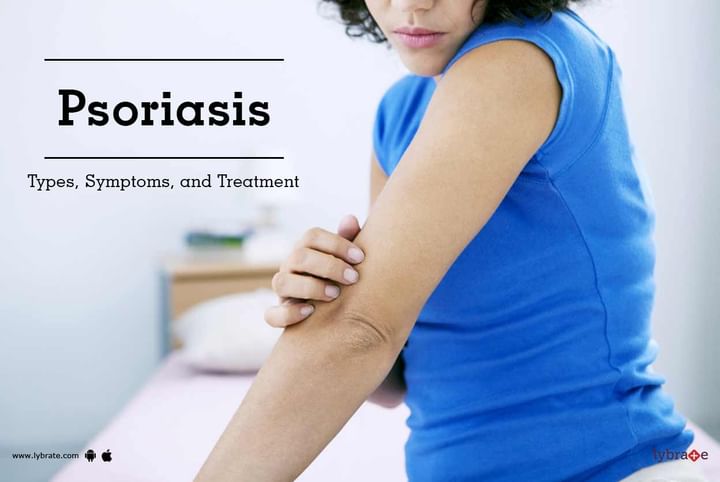Psoriasis - Types, Symptoms, and Treatment
Psoriasis is a common autoimmune disorder of the skin that results in the formation of thickened and elevated plaques of cells that remain covered by scales (loose, whitish-silver scales). In psoriasis, the skin cells multiply at an alarming rate resulting in the scaling of the skin. Though non-contagious, psoriasis can be itchy and often painful. Psoriasis mainly affects the scalp, elbow, and knees. In some, the condition may also affect the palms, feet (soles of the feet), and the torso.
As per a survey, psoriasis is known to affect approximately 2.2% of the total adult population. Psoriasis can also affect children (children under the age group of 5-8 years are mostly affected by this inflammatory skin disorder).
Psoriasis Can of Different Types
- Plaque Psoriasis: As the name suggests, this type of psoriasis results in the formation of plaques of cells (thickened and elevated) on the skin surface. One of the most common types of psoriasis, plaque psoriasis affects the scalp, knees, and elbow.
- Pustular Psoriasis: Pustular psoriasis mainly affects the hands and the feet of the adults whereby white blisters (pus-filled) appear on the affected area of the skin. The skin also appears red and inflamed.
- Guttate Psoriasis: This type of psoriasis usually affects the legs, torso, and arms. Common in children (sometimes young adults), Guttate psoriasis results in the formation of small red spots.
- Inverse Psoriasis: In Inverse psoriasis, shiny red (bright red) inflammations or lesions appear on the armpits, groyne, breasts.
- Erythrodermic Psoriasis: Though rare, this type of psoriasis is marked by extreme redness of the skin. There is also shedding of the scales (in the form of sheets). The skin more or less appears sun burnt.
Symptoms:
The symptoms associated with psoriasis include
- Elevated and inflamed red patches covered by whitish- silver scales (plaques).
- The nails appear thick and pitted.
- There is a pain in the joints followed by swelling.
- At times, the affected skin may crack resulting in bleeding.
- Soreness, itching and a burning sensation around the red patches.
In psoriasis of the scalp,
- There may be the formation of scales (usually mild).
- In severe cases, there may be crusting (the full scalp) which can spread to the forehead, ears (inside and behind), in the beard or even around the nose.
Treatment:
Though there is no definite treatment for psoriasis of the body and the scalp, the following medications may prove to be helpful
- Medications like Methotrexate and Cyclosporine (immunosuppressant drugs), Retinoids, and Biologics (injected intravenously) may provide some relief.
- Patients may also benefit from light therapy, anthralin, topical corticosteroids as well as vitamin D analogs.
Precaution and care
For psoriasis of the scalp
- Before the treatment, it is important to remove (and soften) the scales. Medicated shampoos that contain salicylic acid can be used to remove the scales.
- Use of petroleum jelly or medicated oils and ointments (as recommended by the doctor) can be helpful.
- For better results, you can keep the scalp covered (preferably with a shower cap) after applying the ointment.
For Psoriasis of the Body
- Avoid the skin from getting dry. You can use a medicated lotion or a moisturizer.
- Drinking and smoking can worsen the situation. Avoid these vices as much as you can.
- Avoid using hot water while bathing. To keep your skin moisturised, you can add oil or salt to the water (bathwater).
In case you have a concern or query you can always consult an expert & get answers to your questions!



+1.svg)
